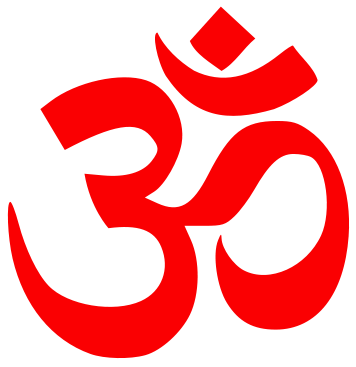- Vedas, Upanishads and Gita are the sacred scriptures of Hindus.
- Hinduism has no founder. Veda and Upanishads were inspired to various ancient sages. Gita is the advice given by the Lord incarnate. Sanatana Dharma means eternal religion, with no beginning and no end.
- For Hindus, the source of all creation, animate or inanimate is the One and Only One Lord called BRAHMAN and none second. All creation including mankind is BRAHMAN and thereby it constitutes a universal brotherhood.
- BRAHMAN is un-manifested (not seen) form is changeless, timeless, formless and attribute less. Its nature is the total existence, consciousness and bliss (sat-chit-ananda).
- In its manifested form, it brings into effect this diverse universe of forms, continual change and various qualities, through its inexpressible power called Maya or Nature.
- As the Lord is not separate from its creation, for a Hindu All Creation is Sacred.
- The Lord also manifests through its various incarnations from time to time, to re-establish the order of the world.
- All creation goes through the cycle of births and deaths. Rebirths occur according to the actions or deeds performed. It is based on the laws of action and reaction.
- However, the primary objective of a human life is the realization that the Lord and its creation, including oneself is one and the same and thereby, attains liberation or the termination of the birth and death cycle (Moksha).
- The highest principle in life is to perform one’s duties and responsibilities and accept the results with peace & equanimity of mind (called Karma Yoga).
- Hindus believe that a human being is endowed with three powers: 1) power of free will 2) power of knowledge and 3) power of creative activity. These powers are given by the Lord for uplifting oneself to higher levels to attain the ultimate goal of liberation.
- There are various ways by which human beings can attain liberation i.e. through knowledge, devotion & right action. As water falling from the sky forms many rivulets and rivers however, it invariably ends up in ocean. Similarly worship in any form performed with pure mind, devotion & sincerity reaches to One and Only Almighty. Thus Hinduism means freedom of worship.
- Hinduism is not a religion but is a Dharma, which is the fundamental characteristics, which maintains, all creation – human being, animal kingdom, plant life & material elements. Dharma sustains everything through the laws of the Lord created at the beginning of the universe.
“Om Shanti, Shanti, Shanti”
Compiled from various resources

